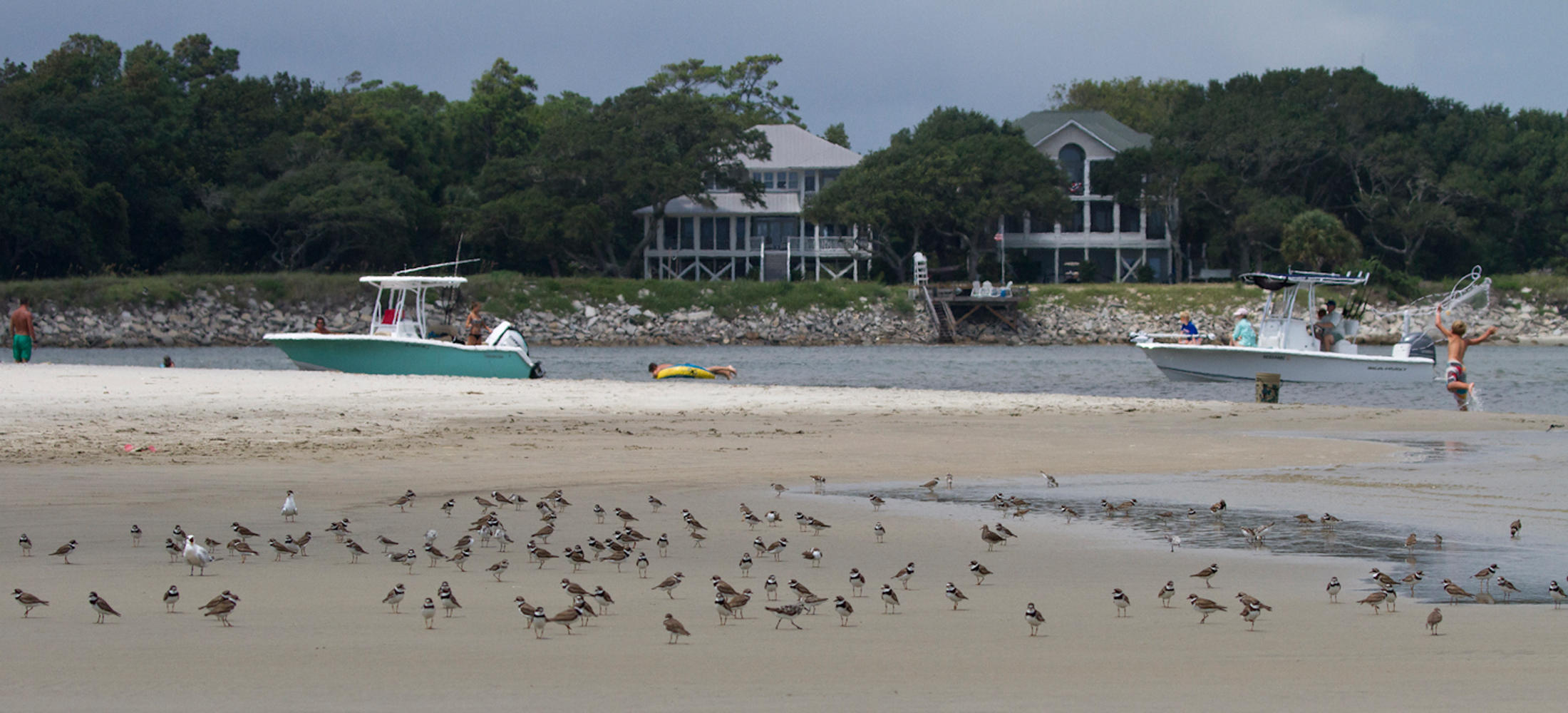Terminal groins, or rock walls built across the beach into the ocean, were prohibited on North Carolina’s coast for more than 30 years because they unnaturally trap sand in one location—robbing nearby beaches of sand and increasing erosion elsewhere.
A proposed terminal groin at Ocean Isle Beach would be no different - an expensive, destructive project with little overall benefit to the town and surrounding communities.
For these reasons the Southern Environmental Law Center, on behalf of Audubon North Carolina, has challenged in federal court the U.S. Army Corps of Engineers’ approval of a terminal groin for Ocean Isle Beach.
The lawsuit claims that the Corps approved the multi-million dollar project without fairly considering other alternatives that would be cheaper for the town's taxpayers, would adequately protect vulnerable properties, and maintain wildlife habitat on the east end of Ocean Isle (one of the few remaining natural inlets available for shorebirds!).
“The terminal groin at Ocean Isle is bad for taxpayers, wildlife and everyone who loves to visit this special place on North Carolina’s coast,” explains Heather Hahn, Executive Director of Audubon North Carolina. “Fortunately it isn’t necessary. There are more effective ways to manage erosion– options that would protect threatened properties, cost residents less money, and work with nature, rather than against it.”
The proposed terminal groin would be particularly devastating to the undeveloped, unspoiled refuge on the island’s east end. This unique area has long been a haven for boaters, families and wildlife alike – each drawn by the peace and tranquility offered by this undeveloped area of shoreline. It also offers a special place where birds can eat, rest, and nest.
“We’re in court because the Corps failed to fairly consider alternatives that would cost Ocean Isle less, manage erosion, and protect the natural beach on the east end of the island when it approved this destructive project,” said Geoff Gisler, senior attorney at the Southern Environmental Law Center. “Federal law requires the Corps to choose the least destructive alternative; with the terminal groin, it approved the most destructive.”
Shorebirds that eat, rest, and nest on inlet shorelines cannot “just go somewhere else”. Ocean Isle's habitat is increasingly rare, and the future for many of these bird species is in danger. For birds and beachgoers alike, we hope to find a better approach.







